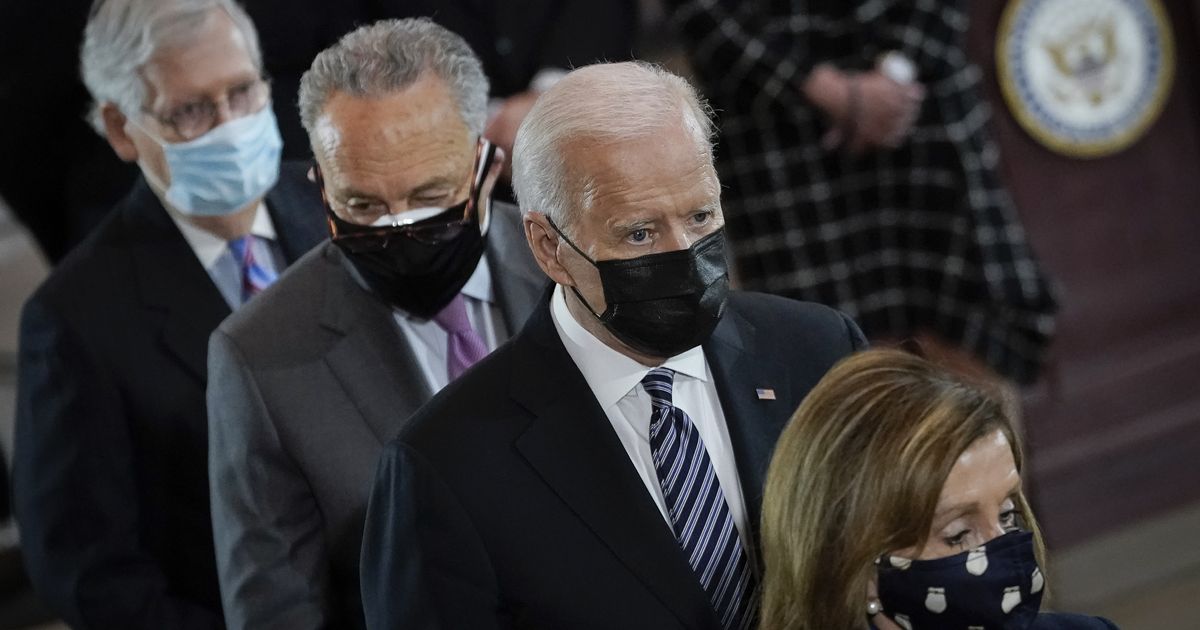
- Select a language for the TTS:
- UK English Female
- UK English Male
- US English Female
- US English Male
- Australian Female
- Australian Male
- Language selected: (auto detect) - EN
Play all audios:
Use it or lose it. Photo: Bloomberg via Getty Images In the last 50 years, there have been 13 in which one party or the other held a trifecta in Washington — governing the White House,
Senate, and House — and 37 when they didn’t. The odds are very high, as I previously noted, against today’s Democrats holding onto the House in 2022. More broadly, though, it’s helpful to
understand how rare and precious trifectas have become generally, at a time when they have become essential for big legislative accomplishments. Until the 1990s, the ideological diversity of
both parties meant trifectas or the absence of one could be misleading. Jimmy Carter had a trifecta the entire time, but struggled to get major legislation through “his” Congress.
Subsequently, Ronald Reagan never had a trifecta, but was able to attract enough moderate-to-conservative Democratic support to create a working majority in Congress for six of his eight
years in office. Indeed, the power of a “conservative coalition” of southern Democrats and Republicans in Congress made it possible for Republican presidents Dwight D. Eisenhower and Richard
Nixon to have decent legislative records. Since the ’90s, trifectas became much more essential to getting one’s way in Washington thanks to two changes: increasing partisan polarization and
then the use of the Senate filibuster to create a de facto supermajority requirement for virtually all major legislation. Meanwhile, close partisan divisions in the country and the tendency
of presidential parties to do poorly in midterms has made trifectas more fragile. Bill Clinton lost his two years into his presidency, in 1994. George W. Bush lost his almost immediately
due to a Senate party switch, won it back in 2002, and then lost it again in 2006. In 2009, Barack Obama had a Senate supermajority for a hot minute, but lost that in a 2010 special
election, and then lost the House later that year, never to win it back. Donald Trump’s trifecta also lasted two years. Lately Democrats have really struggled to assemble or keep one: >
Even abstracting away from the realities of the current situation > that make things much bleaker (literally unprecedented large > structural biases in favor of Republicans in the
house, senate, and > electoral college), Democrats have averaged ~1 trifecta every 14 > years since Carter. https://t.co/xgwXxYH0jI > pic.twitter.com/2cp8pBt2aF > — (((David
Shor))) (@davidshor) August 22, 2021 So let’s say for the sake of argument, I’m wrong about the House in 2022, or I’m right and Democrats are fighting to win back a trifecta they lost that
year. How does it look for 2024? It’s no slam dunk for Democrats to hang onto the Senate in 2022, of course: They have a slight advantage in that Republicans are defending more seats (20 to
13 for Democrats), including three (possible four depending on what Ron Johnson does) open seats in competitive states. But if Republicans get the usual national midterm wind in their favor,
it could protect their seats in states like North Carolina, Ohio, Pennsylvania, and Wisconsin and endanger Democratic incumbents in Arizona, Georgia, Nevada, and New Hampshire. If they do
keep control of the Senate in 2022, things get tougher in 2024. That year Democrats will be defending 23 Senate seats, three in states carried by Trump in 2020 and six in states carried by
Trump either in 2016 or 2020. Republicans will be defending just 10 Senate seats, all of them in states Trump carried twice. In 2024, of course, Democrats will either retain or lose the
presidency. If they win then, 2026 is likely to be another bad year for them in House races. But if they lose, the trifecta is gone for sure until 2028. So without question, Democrats need
to maximize use of the current trifecta if they don’t want to risk a long wilderness stretch of divided government or Republican trifectas, when the kind of legislation they are
contemplating in the upcoming $3.5 trillion budget reconciliation bill will be unimaginable. There has been a lot of debate about whether Biden will come out of this year and next with a
record of progressive social policy accomplishment rivaling that of LBJ. Democrats should also debate whether the 54-year gap between the end of the Great Society era and the window of
Democratic opportunity today is one they are willing to risk repeating.

![[withdrawn] near miss with a track worker at llandegai tunnel](https://assets.publishing.service.gov.uk/media/6051d710d3bf7f0455a6e604/s960_Llandegai_tunnel.jpg)







